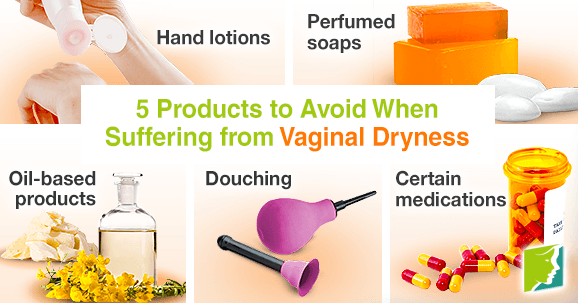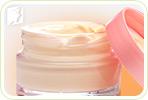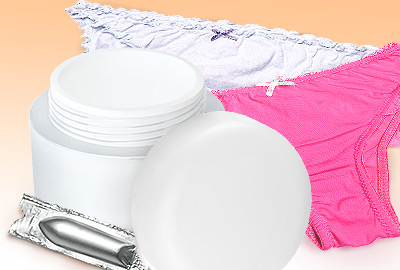When menopause causes estrogen levels to drop, a woman's level of naturally occurring vaginal lubrication simultaneously decreases. While uncomfortable and disruptive, the experience of vaginal dryness is very common among women.
Due to its intimate nature, the experience of vaginal dryness can sometimes appear embarrassing. However, if women fail to seek out treatment, the disruption it causes and the pleasure it takes away from sex can become exaggerated. By avoiding certain products, though, you can limit the discomfort of the symptom.
Hand Lotions
The use of hand lotions in sensitive regions should be avoided because they often contain artificial ingredients that disrupt the vagina's natural environment and alter its pH. Scented products may also irritate the area and produce vaginal discharge.
Perfumed Soaps
Perfumed soaps can irritate surrounding sensitive vaginal tissues. Replacing them with fragrance-free, hypoallergenic cleansing agents may help to increase mucous secretions within the vagina. However, if you also find these products to be unsuccessful, try washing the area with warm water alone.
Oil-Based Products
Canola and sunflowers oils, cocoa butter, and oil-based products such as petroleum and baby oil can irritate the vagina and should not be used as sexual lubricants. The exception to the rule is vitamin E, because it can help relieve itching and irritation while also providing lubrication. The vitamin can be applied topically or taken in the form of capsule supplements, though it should not be overused. Also, women can use water-based lubricants to avoid irritation.
Douching
Typically considered as an effective means of cleansing your vagina, douching - or cleaning with a prepared combination of water, vinegar, and antiseptics - can actually disrupt the region's normal chemical balance and provoke dryness. The consequence is vaginal inflammation known as vaginitis, a condition that can cause the vagina to feel itchy and irritated.
Certain Medications
Long-term use of medications such as antihistamines and antidepressants can dry out the mucosal membrane lining the vagina wall. In addition, certain breast cancer and high blood pressure medications, such as tamoxifen and raloxifene, can interfere with your body's estrogen levels and result in vaginal dryness. Check with your physician before stopping or changing any prescriptions.
By avoiding the above products, vaginal dryness can be limited and you can maintain the quality of life to which you are accustomed without affecting your sex life. If you are experiencing a severe case of vaginal dryness or just want to learn more about it, follow this link for information on vaginal dryness treatments.
Sources
- Mayo Clinic Health Resource.(n.d)."Vaginal Dryness".Retrieved from Mayo Clinic Health Resource. 2007
- The Changing Body: Menopause Handbook.(n.d)."Vulvovaginal Symptoms". The Changing Body: Menopause Handbook. Retrieved from www.menopause.org
- Love, Susan M.D. Menopause and Hormone Book. New York: Three Rivers Press, 2003.




